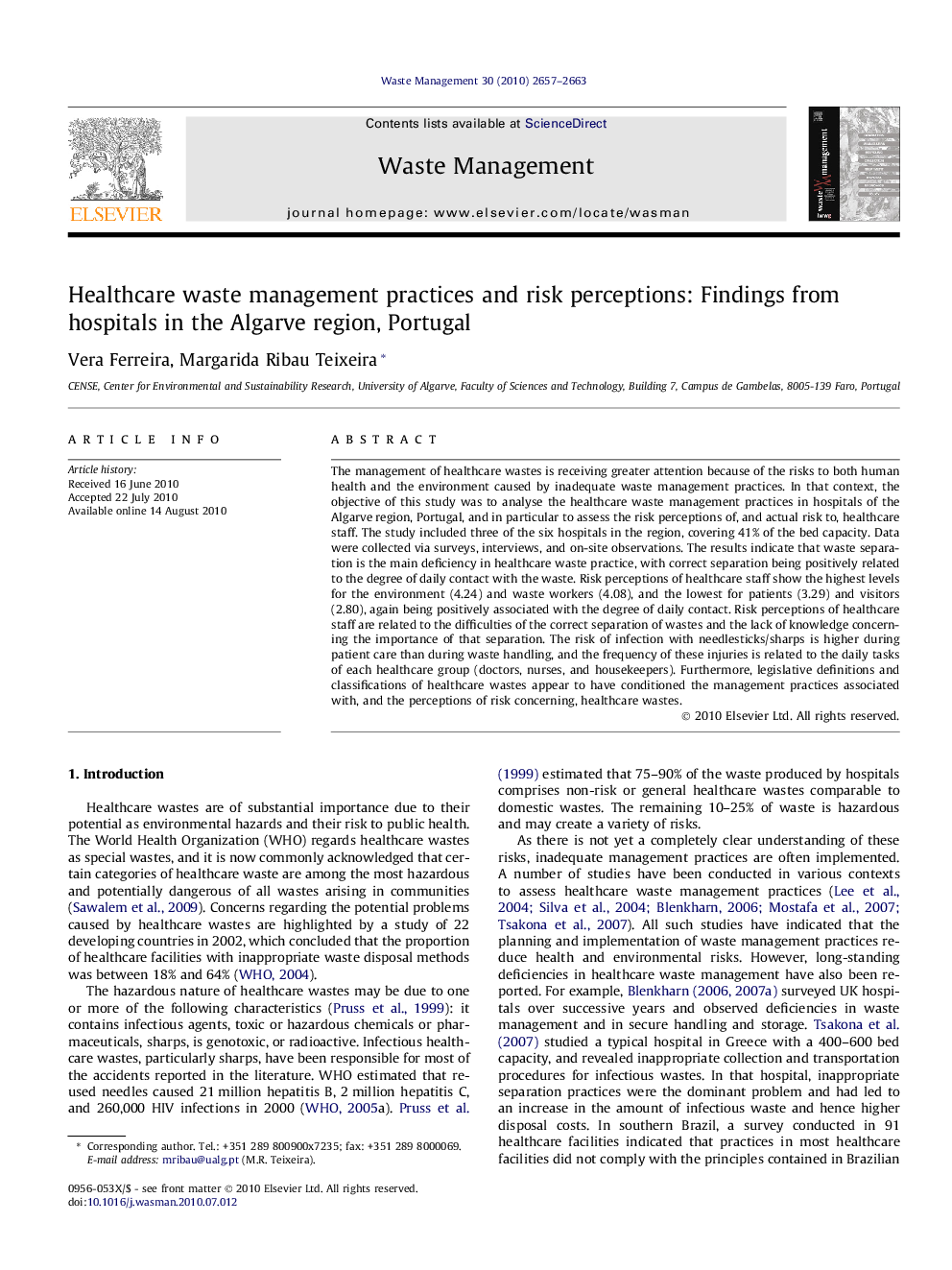| کد مقاله | کد نشریه | سال انتشار | مقاله انگلیسی | نسخه تمام متن |
|---|---|---|---|---|
| 4472585 | 1622652 | 2010 | 7 صفحه PDF | دانلود رایگان |

The management of healthcare wastes is receiving greater attention because of the risks to both human health and the environment caused by inadequate waste management practices. In that context, the objective of this study was to analyse the healthcare waste management practices in hospitals of the Algarve region, Portugal, and in particular to assess the risk perceptions of, and actual risk to, healthcare staff. The study included three of the six hospitals in the region, covering 41% of the bed capacity. Data were collected via surveys, interviews, and on-site observations. The results indicate that waste separation is the main deficiency in healthcare waste practice, with correct separation being positively related to the degree of daily contact with the waste. Risk perceptions of healthcare staff show the highest levels for the environment (4.24) and waste workers (4.08), and the lowest for patients (3.29) and visitors (2.80), again being positively associated with the degree of daily contact. Risk perceptions of healthcare staff are related to the difficulties of the correct separation of wastes and the lack of knowledge concerning the importance of that separation. The risk of infection with needlesticks/sharps is higher during patient care than during waste handling, and the frequency of these injuries is related to the daily tasks of each healthcare group (doctors, nurses, and housekeepers). Furthermore, legislative definitions and classifications of healthcare wastes appear to have conditioned the management practices associated with, and the perceptions of risk concerning, healthcare wastes.
Journal: Waste Management - Volume 30, Issue 12, December 2010, Pages 2657–2663